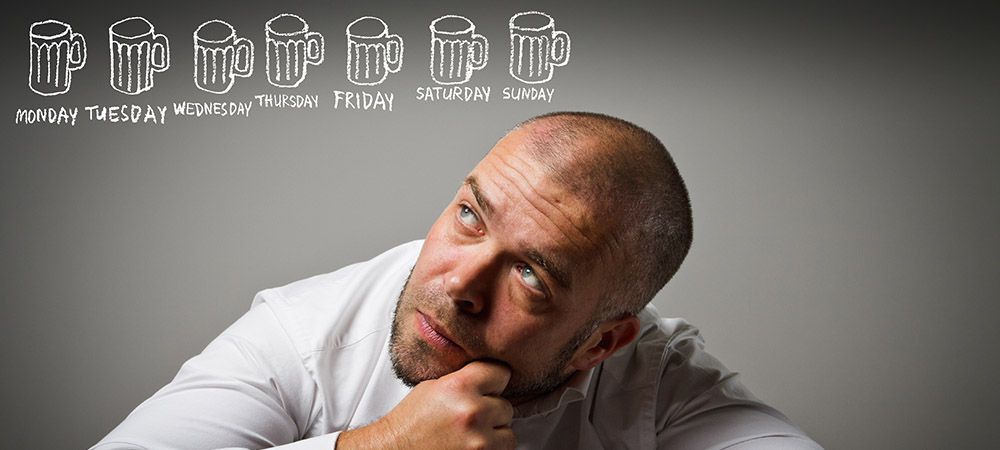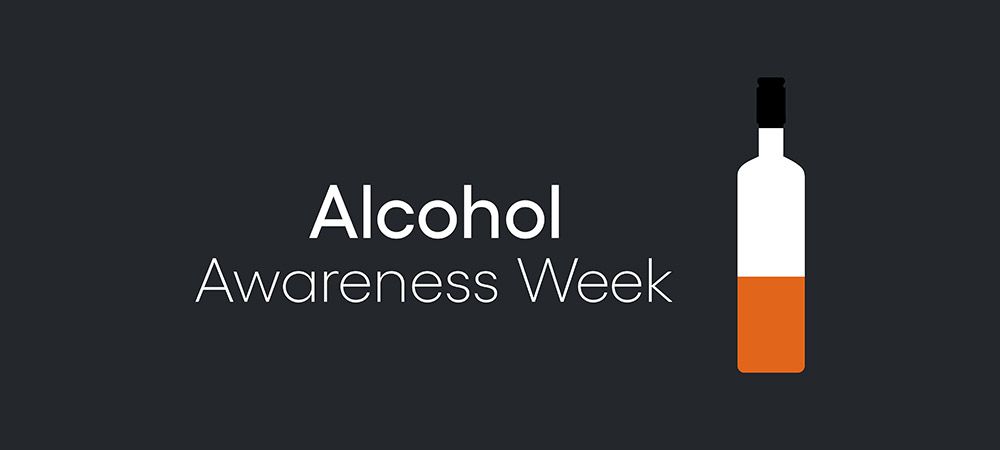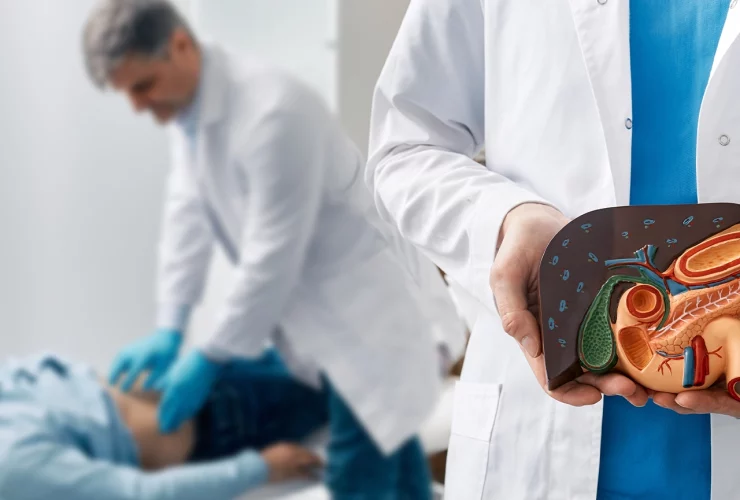What Happens After One Week of Not Drinking?
The topic above is a common question for someone looking to quit alcohol. Why do they ask this sort of question? Our best guess is you’re trying to gauge the benefits of giving up alcohol. Or maybe you’re seeking other validations/motivations to end the habit.
Whatever your reasons, we hope knowing what happens after you stop drinking will motivate you to stop. We know that quitting alcohol is never an easy decision.
The continued consumption of alcohol must have had a profound physical and psychological effect on your being. And these effects combine to make it harder to cease taking the substance.
Regardless, don’t let the fear of the unknown keep you from quitting drinking. Of course, it’s easier said than done to take such a vital step in life. So, to reduce the mental burden, we’ll be discussing the things you can expect to happen when you stop drinking for one week. These are things reports and studies observed to occur in the early stages of alcohol withdrawal.
What Happens After You Stop Drinking For a Week?
We’ll split the duration into stages to adequately cover what happens after you stop drinking for seven days. However, you should also note that these are not established behavioural patterns. Instead, they’re assumptions based on people’s observed response to alcohol abstinence.
Therefore, there’s no certainty that you’ll experience the same. You can and should expect variations in what you’ll experience.
That said, the timeline below highlights the potential symptoms and changes you may observe within the next seven days — if you quit alcohol today.
Two to Twelve Hours After Quitting
The first 12 hours after you take your last drop of alcohol may present some interesting experiences. First, you may or may not feel any different than usual depending on your daily alcohol consumption rate before quitting. So, if you usually take alcohol every 12-24 hours, you can expect to feel your usual craving for alcohol within this period.
The withdrawal experience begins when you resist that desire and deny your body. The onset of withdrawal symptoms starts during the first 12 hours of abstinence. It often begins with a thirst for alcohol which worsens as time progresses.
During this interval, you may go through phases of retching, hand tremors and excessive sweating. Of course, the severity of these symptoms will depend on how much alcohol you used to drink.
It sounds a bit scary, but don’t panic; it’s all in the process of your body trying to eliminate the alcohol from your system. If you were a mild drinker, you may only feel the thirst for alcohol and nothing more. However, prepare yourself for the worst if you are a heavy drinker.
Also, we’ll advise against the idea of removing all the booze from your house by drinking it the night before you quit. Don’t say, “I’ll quit starting tomorrow so let me knock myself out tonight.”
Doing so means your body will take the first 12 hours to absorb the alcohol instead of eliminating it. This scenario will invariably extend the time it takes your body to flush the alcohol and start healing.
After the First Day
Your withdrawal symptoms will progress significantly by the end of the first day. You’ll most likely begin to experience acute pangs of withdrawal symptoms. But then again, the intensity of your symptoms depends on how alcohol-dependent you were before quitting.
You’ll experience more severe forms of the original symptoms and some new conditions at different points during the first 12 – 24 hours. For instance, the retching, anxiety, shakiness and alcohol cravings will worsen.
In addition, you may find it difficult to sleep during the night. Insomnia symptoms are due to abruptly depriving the body of what it’s come to recognize as one of its sleeping mechanisms.
The hypnotic effect of alcohol often helps relax a drinker’s nerves. That’s why you find it easier to fall asleep when drunk. But without alcohol in your system, it becomes more difficult to plummet into the unconscious state.
You may find yourself low on energy both physically and mentally at this point. In addition, rapid bouts of anxiety and lack of energy may ultimately put you on the cusp of depression.
Getting to 72 Hours
Many specialists agree that the first 72 hours are the most critical period for people trying to quit alcohol. You’re most likely to experience your most painful withdrawal phase within this timeframe. Most people experience their peak withdrawal symptoms around 48 hours after stopping alcohol.
Typically, during the interval between the first 24 hours to 72 hours, you’ll experience a myriad of symptoms such as:
- Extreme alcohol cravings
- Nausea and vomiting
- Headaches
- Shakiness and shivering
- Palpitations
- Chill’s or hot flashes
- Insomnia
- Anxiety
- Depression
- Low energy
- Irritation
In rare and extreme cases, you may develop a temporary brain condition called delirium tremens(DTs). The symptoms of this condition include seizures, hallucinations and increased blood pressure. In addition, you may experience disorientation and delusions alongside the other symptoms.
The good news is the symptoms should begin to subside towards the end of the third day. So, for most people, getting through the first 72 hours practically means victory. Nonetheless, don’t get comfortable yet; you still have ways to go.
Day 4 to Day 7
Your body focuses on healing itself during this period after enduring the torrid phase of withdrawal symptoms.
The withdrawal symptoms cease for most people around this interval. So, you’re most likely going to start feeling better at this point. You should also begin to notice a few physical changes as your body gets rid of the last drops of alcohol.
You may still feel some withdrawal symptoms during this period. However, we expect them to be more manageable and less aggressive. Then again, there are rare cases where the symptoms remain intense even until the end of the first week. Such cases are usually in people who have become highly dependent on alcohol.
By the end of the seventh day, your sleep pattern will improve, you’ll also stop experiencing anxiety attacks. The sweating, disorientation, shakiness, palpitations, and other similar symptoms should also stop.
Generally, at this point, you should be getting back on track. All you need is to let your body fully heal from the side effects of alcohol consumption.
However, you want to be very cautious from this point onward. Most of what you’ll experience from the fourth day will involve temptations to indulge in a cup or two of booze.
Because you’re feeling better, you may start to think you’re overreacting, and nothing can go wrong with a glass or two. Your recovery process can go wrong if you so much as take a sip of alcohol at this point.
That said, we recommend you don’t attempt to quit alcohol abruptly. Quitting alcohol alone can be extremely dangerous, especially if you have a chronic dependence on it. Instead, seek professional alcohol addiction treatment. Expert addiction treatment makes it easier to pass through the dreaded first week after quitting alcohol.
A treatment specialist can prescribe medications to lessen the effects of your withdrawal symptoms. They can also provide medical intervention if your situation calls for it.
Related Article: Does it Take 40 Days for Alcohol to Leave the Body?
Alcohol Addiction Doesn’t End After One Week.
This article answers the questions about what happens after one week of not drinking because that’s what many people want to know.
However, what you should be more concerned about is what happens after you finally put a stop to your drinking habits. What changes will you experience physically, psychologically and in every other aspect of your life?
A major mistake many people make when trying to quit alcohol is thinking it’ll all be over in a week. This idea may be due to misinformation regarding what happens when you quit drinking and the timeline.
Unfortunately, many posts and articles online lead people to believe they can be rid of their alcohol addiction within a week of abstinence and treatment.
The Truth About Quitting Alcohol
Yes, you’ll go through what’ll seem like the most difficult phase of your alcohol-free life in one week of quitting. However, everything doesn’t magically end after seven days.
The symptoms may get significantly better, but that’s only the starting point in your journey to being free. This journey may take months or years to complete, but it never happens in a week.
Several alcohol addicts manage to brave through the first week of quitting alcohol only to relapse down the road. This statistic is prevalent because many assume it’ll all be over after seven days.
They had probably believed that if they could last through the seven days, they’d have their victory. So instead of planning for a lengthy life-changing journey, they simply embarked on a seven-day alcohol fasting exercise.
The truth is, you can grit your teeth and bear through one week without alcohol. All you need to do is convince yourself it’s all for a little while.
Unfortunately, with this approach, you’re simply hitting the pause button on your habits and unknowingly setting a time for it to resume. You may last through the week and a few more days, but you can’t sustain it for long because you’re not adequately prepared.
How Long Does Alcohol Addiction Recovery Take?
The best approach is to recognize your alcohol treatment and recovery period as a long journey. You don’t know for sure when it’ll end. Therefore, you don’t have a particular timeline in mind.
Instead, you take it one day at a time and focus on conquering the temptations that come your way each day. You can view the gruelling first week as a training period for what’s to come.
Use the first seven days to identify the cues that trigger your thirst for alcohol. Next, pinpoint the problem areas that lead to your drinking habits. It may be awkward at first. But, it becomes easier as it becomes routine. Once you identify these triggers, find ways of avoiding them or develop healthier alternatives to alcohol when you can’t avoid the triggers.
The most important thing to do in the first week after quitting alcohol isn’t avoiding the dreaded liquid. Instead, you want to use this period to prepare yourself for a life free of alcohol and other addictions.
Your body automatically heals itself once you’re able to deal with your unhealthy addiction. So, all it needs from you is to deal with those cravings daily.
Related Article: How Long After You Stop Drinking Does Your Body Heal?
To Sum it Up
What happens after you stop drinking goes beyond the first seven days of dropping the booze. Obviously, the first week plays a crucial role in how things will eventually turn out. It’s the point where you’ll experience your most severe withdrawal symptoms.
But don’t fall into the trap of thinking it’ll all be over after that one week. The recovery process is a marathon, not a sprint.
If you’re ready to embark on the journey to be free of your alcohol addiction, you’re not without help. Reach out to our alcohol addiction treatment team today. Here at Inspire Change Wellness Centre, we provide medical support and supervision for men trying to overcome their unhealthy habits. So come, let’s help you get back on the healthy track.




